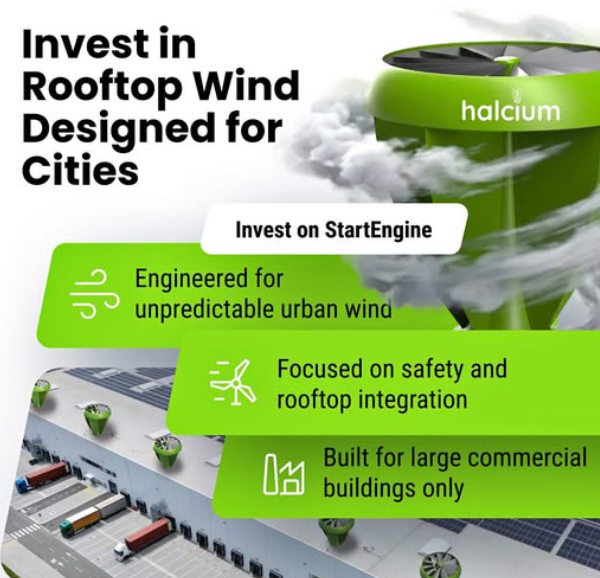Introduction Life Cycle Assessment
LCA provides a holistic approach to evaluate the environmental impacts of bioenergy systems throughout their entire life cycle, including feedstock production, conversion, distribution, and end-use.
As the world seeks to transition to a more sustainable energy future, bioenergy has emerged as a promising renewable energy source.
However, to ensure its true sustainability, it is essential to conduct a comprehensive life cycle assessment (LCA) of bioenergy systems.
In this article, we will explore the significance of conducting LCA studies for sustainable bioenergy systems and highlight key findings and considerations from such assessments.
Outlook Life Cycle Assessment
1. Scope of Life Cycle Assessment
A life cycle assessment considers the environmental impacts associated with all stages of a bioenergy system, from cradle to grave.
This includes the cultivation and harvesting of biomass feedstocks, transportation, conversion processes (such as combustion, gasification, or fermentation), energy distribution, and eventual disposal or reuse of by-products. By analyzing the complete life cycle, LCA provides a comprehensive understanding of the environmental burdens and benefits associated with bioenergy systems.
2. Environmental Impact Categories
LCA evaluates various environmental impact categories, including greenhouse gas emissions, energy consumption, land use, water use, air and water pollution, and biodiversity impacts. Assessing these categories allows for a holistic understanding of the potential environmental trade-offs and benefits associated with bioenergy systems.
It enables decision-makers to identify hotspots and prioritize mitigation strategies to enhance the sustainability of bioenergy production and utilization.
3. Feedstock Production
The production of biomass feedstocks is a critical stage in the life cycle of bioenergy systems. LCA studies evaluate the environmental impacts of land use change, fertilizer use, pesticide application, water consumption, and soil degradation associated with feedstock cultivation.
Sustainable feedstock production practices, such as agroforestry, crop rotation, and organic farming, can reduce the environmental footprint of bioenergy systems and enhance their overall sustainability.
4. Conversion Technologies
The choice of conversion technology significantly influences the environmental performance of bioenergy systems.
LCA studies assess the energy efficiency, emissions (including greenhouse gases and air pollutants), and waste generation associated with different conversion processes. Comparing the environmental impacts of various technologies, such as combustion, anaerobic digestion, or pyrolysis, helps identify the most sustainable options and enables continuous improvement in bioenergy system design and operation.
5. Energy Balance and Greenhouse Gas Emissions
One key aspect of LCA is evaluating the energy balance and greenhouse gas emissions of bioenergy systems. By comparing the energy output from bioenergy with the energy inputs required for feedstock cultivation, processing, and distribution,
LCA assesses the overall energy efficiency and net energy gain of the system. Additionally, LCA quantifies the greenhouse gas emissions throughout the life cycle, including direct emissions from combustion or fermentation and indirect emissions from feedstock production and processing.
6. Co-products and By-products
Bioenergy systems often generate co-products and by-products, such as biochar, digestate, or heat. LCA assesses the environmental impacts associated with these outputs and explores their potential for value-added applications.
Proper management and utilization of co-products and by-products can enhance the environmental performance and economic viability of bioenergy systems, contributing to a more circular and sustainable bioeconomy.
7. Land Use and Biodiversity Considerations
LCA evaluates the land use impacts of bioenergy systems, including the potential conversion of natural habitats for feedstock production.
It assesses the impacts on biodiversity, ecosystem services, and the conservation of natural resources. Incorporating biodiversity indicators and assessing the potential land use competition with food production can guide decision-making to minimize adverse effects on ecosystems and ensure sustainable bioenergy production.
8. Policy and Technological Implications
LCA studies provide valuable insights for policymakers and industry stakeholders to inform policy development and technological advancements in the bioenergy sector.
By identifying environmental hotspots and areas of improvement, LCA studies guide the formulation of sustainable bioenergy policies and regulations. These policies can incentivize the adoption of cleaner conversion technologies, promote sustainable feedstock production practices, and encourage the utilization of co-products and by-products. Additionally, LCA findings can drive research and development efforts to enhance the environmental performance and efficiency of bioenergy systems.
9. Uncertainty and Data Quality
LCA studies face challenges related to data availability, uncertainty, and system boundaries. Gathering accurate and reliable data for all stages of the bioenergy life cycle can be complex, especially when considering indirect land use change effects and assessing emissions over long time frames.
Uncertainty analysis and sensitivity assessments are conducted to identify key parameters and sources of uncertainty, improving the robustness of LCA results. Collaboration between researchers, industry, and data providers is crucial to ensure the availability of high-quality data and harmonized methodologies for consistent LCA assessments.
10. Integrated Decision-Making
LCA serves as a tool for integrated decision-making, considering not only the environmental aspects but also the economic and social dimensions of bioenergy systems. Integrated assessment frameworks, such as sustainability assessments or multi-criteria decision analysis, combine LCA results with economic indicators, social impacts, and stakeholder preferences.
This integrated approach helps identify synergies, trade-offs, and potential co-benefits, facilitating the development of sustainable bioenergy strategies that align with broader sustainability goals.
Conclusion LCS-Life Cycle Assessment
Life cycle assessment plays a vital role in evaluating the environmental impacts and sustainability performance of bioenergy systems.
By assessing the complete life cycle, LCA enables decision-makers to identify environmental hotspots, prioritize mitigation strategies, and make informed choices regarding feedstock selection, conversion technologies, and policy development. LCA studies help guide the transition to sustainable bioenergy systems that minimize environmental burdens, contribute to climate change mitigation, promote resource efficiency, and foster the development of a circular economy.
Through continued research, data improvement, and collaboration among stakeholders, LCA will play a crucial role in shaping the future of sustainable bioenergy and supporting the transition to a low-carbon and resilient energy system.
https://www.exaputra.com/2023/07/life-cycle-assessment-of-sustainable.html
Renewable Energy
Rooftop Wind
 My doctor, who knows that I understand physics and renewable energy in particular, asked me today what I thought about wind turbines on boats.
My doctor, who knows that I understand physics and renewable energy in particular, asked me today what I thought about wind turbines on boats.
I explained that, since boats need their own ways to generate electricity, what is called “small wind” may make sense. Most ships have diesel-powered generators, and that’s an option for smaller craft as well, and solar is not an attractive option because of the small area.
Doctors generally don’t have time to kill, but he asked me further about small wind, to which I explained:
Because the area of a circle is proportional to the square of the radius, big is better. If you can build a turbine with a radius 100 times larger than a small one, you’re going to generate 10,000 time more power.
Because the power generated by a turbine is proportional to the cube of the wind’s velocity, if you can site a turbine in wind conditions that are 10 times those on your rooftop, with trees and other buildings slowing the wind down, you’re going to generate 1000 times more power.
So, as usual, the answer resides in physics and math. 1000 times 10,000 is 10 million, which is why we see huge turbines on structures that lift huge turbines high above the ground, and it’s why the small wind industry has essentially disappeared.
If you don’t understand elementary school math and high school science, and you have money to burn, the investment offered at left may be right for you.
Renewable Energy
Fox News and its Effects on American Civilization
 It’s interesting that there is no Fox News (or equivalent) in Canada.
It’s interesting that there is no Fox News (or equivalent) in Canada.
The Canadians have protections of free speech that are very similar to ours in the States, and, like the U.S., these rights are not absolute. One difference is that Canada prohibits gross misrepresentation, which, in this case means that presenting opinions and calling it “news” is against the law. Lies are fine; calling them “news” is not.
A possible name for a show with the same content might be “Conservative Viewpoints” or “The Way the Right Wing Sees the World.”
Where Canada protects its people from malicious bullshit, in America we say, “Money talks.”
Renewable Energy
Apathy in the Midst of Treason
 Former Labor Secretary Robert Reich makes an excellent point at left.
Former Labor Secretary Robert Reich makes an excellent point at left.
The constant onslaught of distractions coming out of Trump’s mouth is calculated make us give up striving for truth, honesty, and environmental responsibility.
We mustn’t quit.
-
Greenhouse Gases7 months ago
Guest post: Why China is still building new coal – and when it might stop
-
Climate Change7 months ago
Guest post: Why China is still building new coal – and when it might stop
-

 Greenhouse Gases2 years ago
Greenhouse Gases2 years ago嘉宾来稿:满足中国增长的用电需求 光伏加储能“比新建煤电更实惠”
-
Climate Change2 years ago
Bill Discounting Climate Change in Florida’s Energy Policy Awaits DeSantis’ Approval
-
Climate Change2 years ago
Spanish-language misinformation on renewable energy spreads online, report shows
-

 Climate Change2 years ago
Climate Change2 years ago嘉宾来稿:满足中国增长的用电需求 光伏加储能“比新建煤电更实惠”
-
Climate Change Videos2 years ago
The toxic gas flares fuelling Nigeria’s climate change – BBC News
-

 Carbon Footprint2 years ago
Carbon Footprint2 years agoUS SEC’s Climate Disclosure Rules Spur Renewed Interest in Carbon Credits




